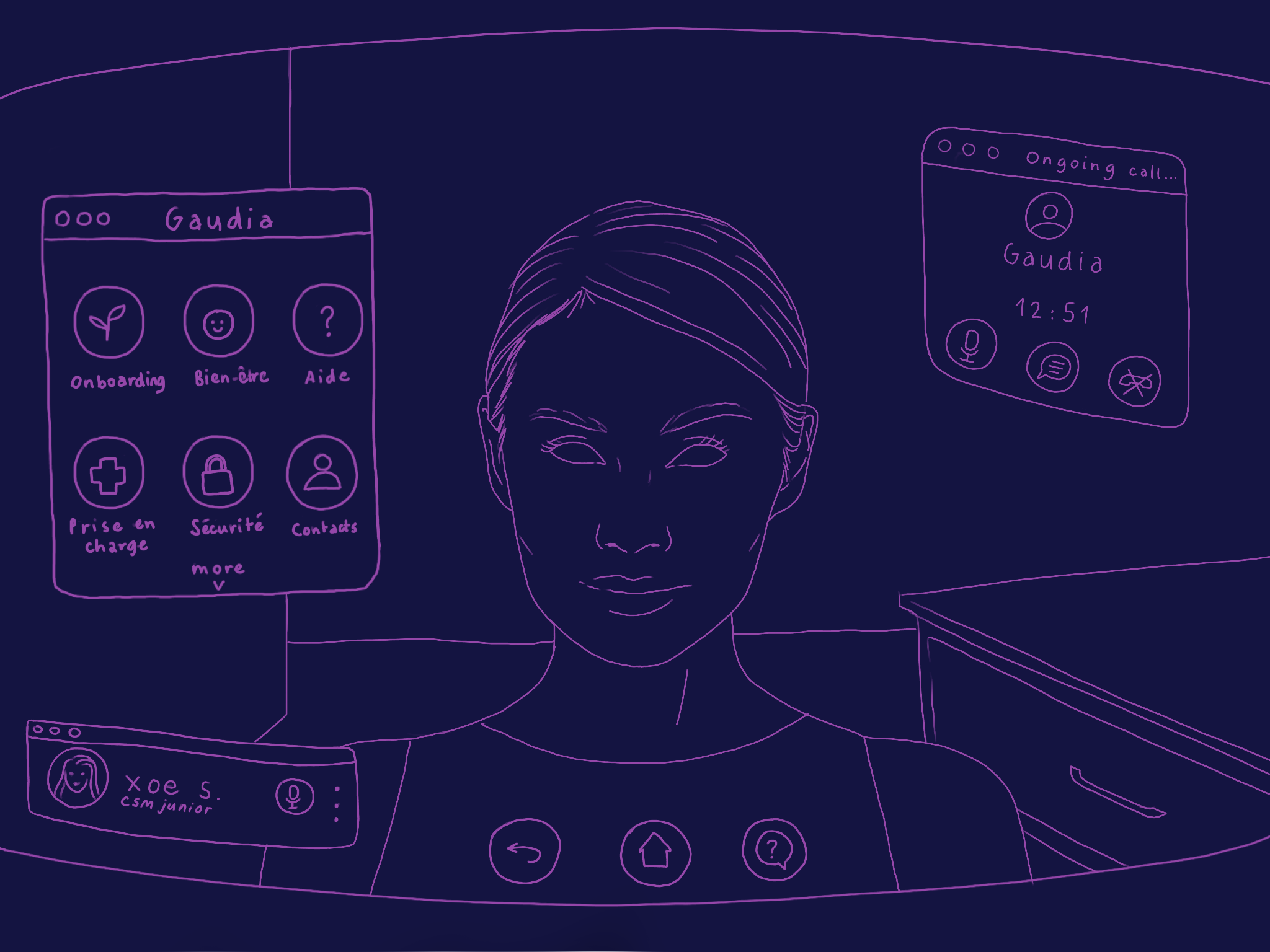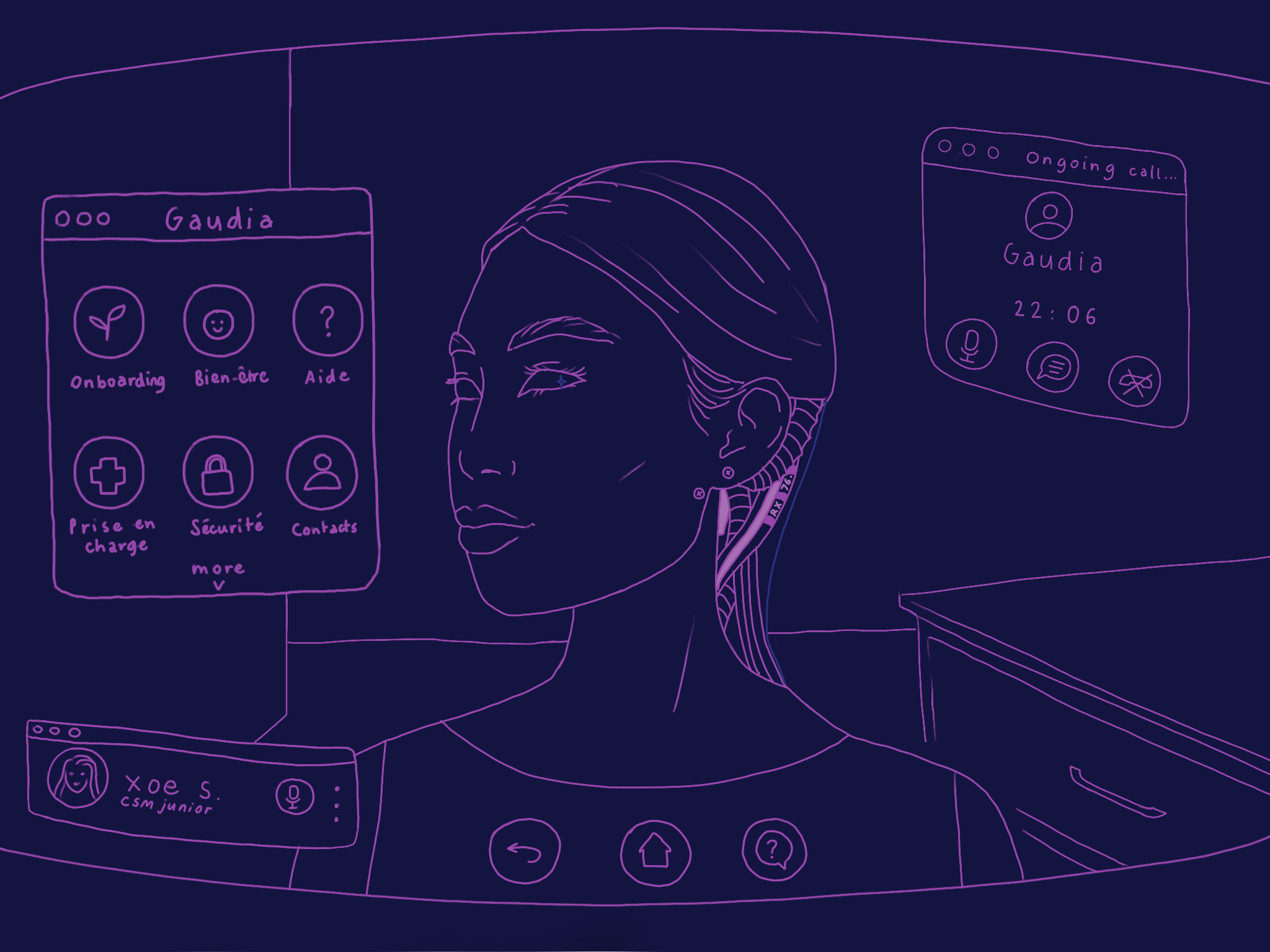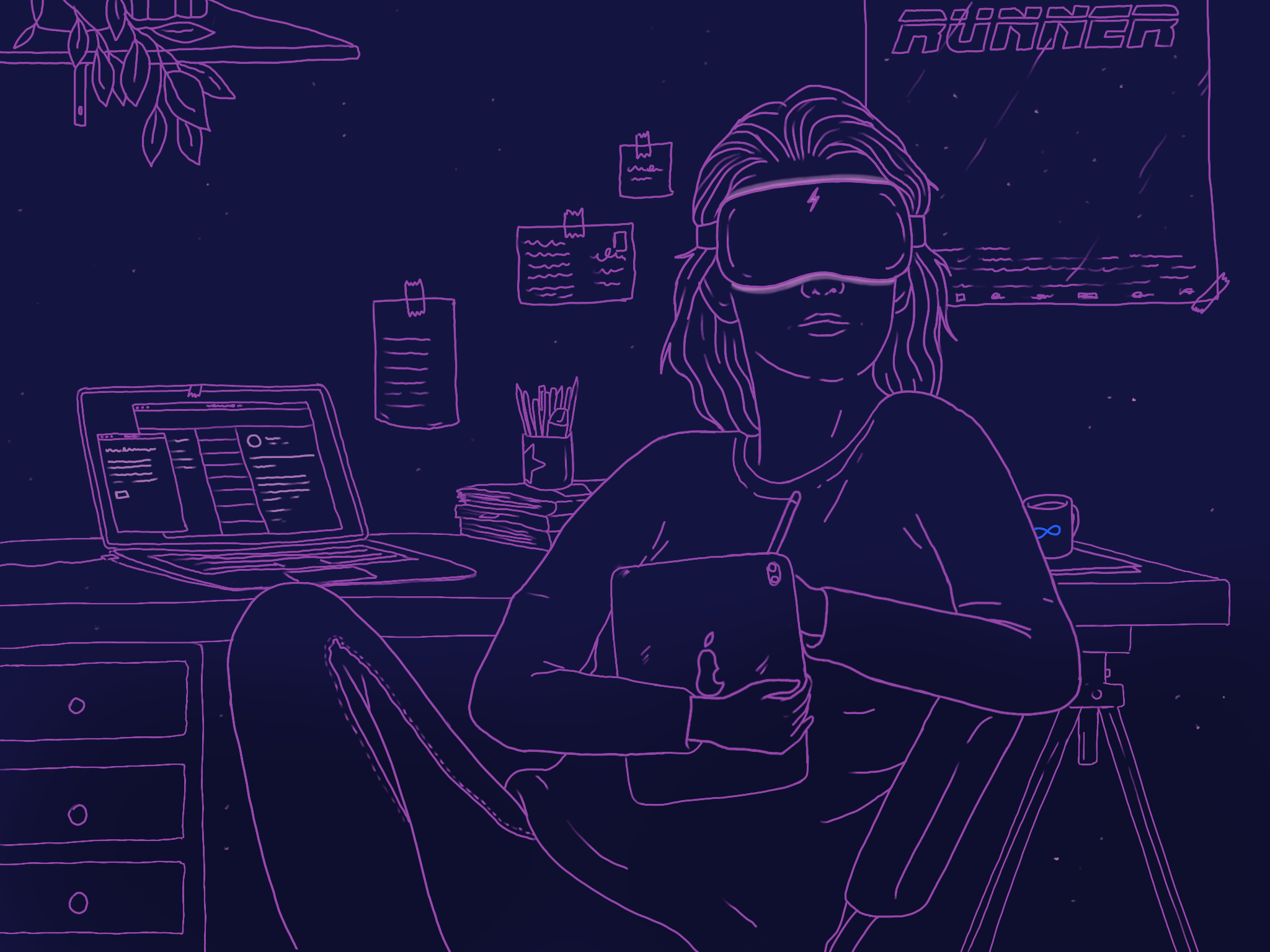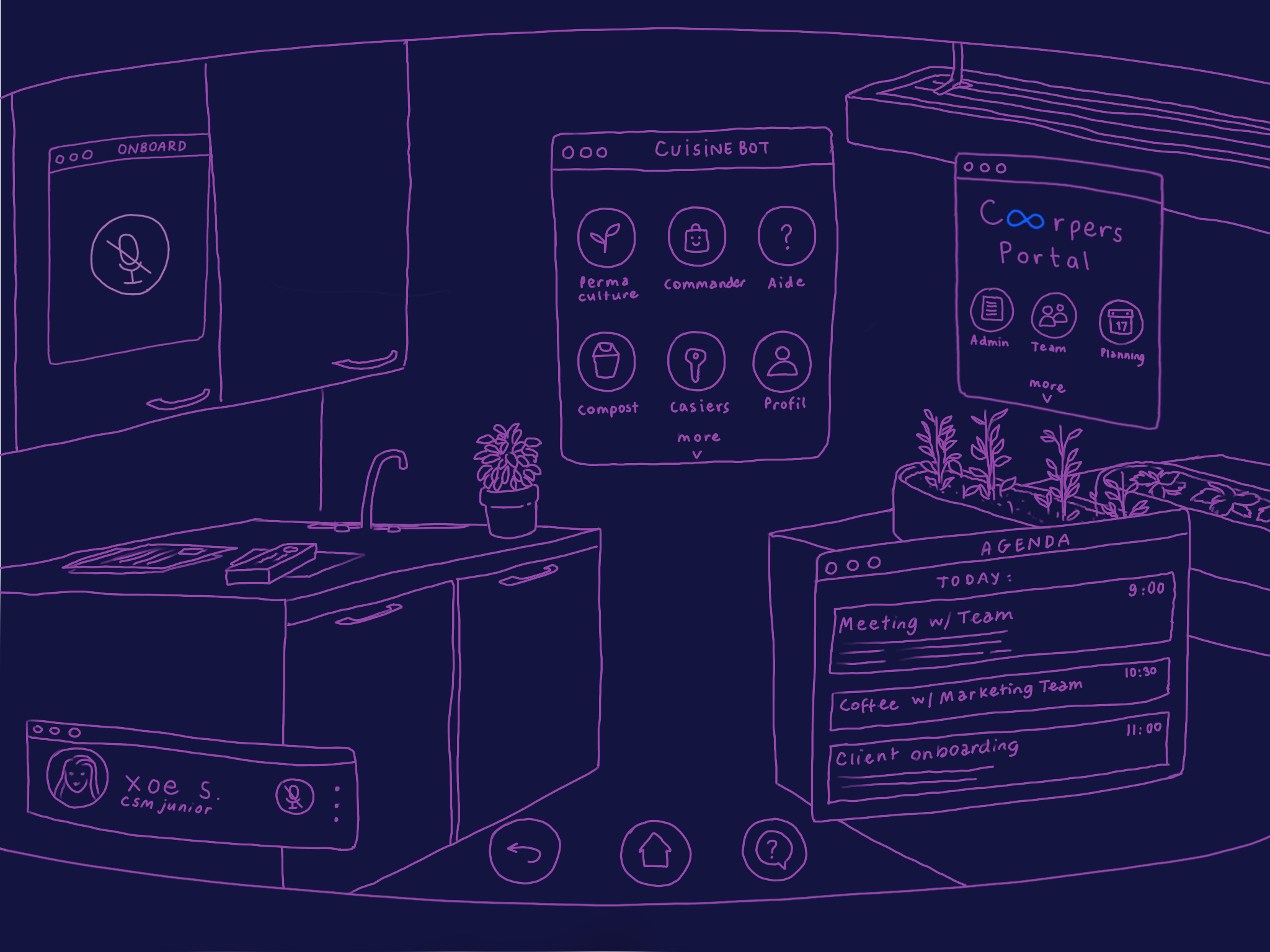Somewhere in the world, on a date you may one day need, we have located an advanced technology that allows us to immerse ourselves in the daily lives of employees. This fantastic journey through the experiences of different employees will take you to the edge of the Future of Work and allow you to see the challenges of business transformation. Today in our odyssey, discover the daily life of Gaudia…
“Hello Xoe. My name is Gaudia and I’m Coorpacademy’s mental health referent, formerly Chief Happiness Manager! How are you?”
“Hi Gaudia, nice to meet you! I’m doing very well thank you, how about you?”
“I’m doing very well too, I recharged my batteries well this weekend! You recently joined your team, and it’s time for the monthly wellness talks. Are you familiar with these talks?”
“Not really… Are you going to ask me any questions?”
“Indeed. The purpose of the monthly well-being interview is to evaluate the well-being of employees and to assess their needs and motivation. It’s a free and confidential exchange, it’s up to you to tick off the information you wish to disclose to your hierarchy once the interview is over through a report that is automatically displayed at the end of our interview. Are you comfortable with that?”
“It’s very clear thank you! Yes absolutely.”

“The interview can begin. First of all, how did your onboarding go? Do you have any specific comments about the conditions in which you were welcomed?”
“Hmm… I thought the onboarding was great! I was at a distance and I was still able to visit the premises, meet my team and talk with my manager thanks to the virtual onboarding. All my tools were in place, I didn’t encounter any major difficulties!”
“I see. On a scale of 1 to 10, how much would you rate your onboarding?”
“I would give it a 9. Only because I still would have liked to have physically come for my first day but it was a bad set of circumstances.”
“Thank you. So you found out about the office remotely, but you were able to get there quickly. Are you happy with your workstation? Do you have any unaddressed needs or difficulties booking a workspace?”
“No, it’s perfect!!! 10 out of 10. I love being able to change desks and vary my work environment. Each station is well equipped and comfortable, I really don’t see anything to add.”
“Noted. Now we’ll move on to a series of teamwork questions. How is it working with your new colleagues?”
As the interview progresses, Gaudia gradually gets to the questions of commitment to work, and the meaning Xoe gets from her assignments – “We’re almost at the end of our interview” she announces.
“We’re coming to the end of our interview soon,” she announces. “This is a more direct question I’d like to ask you. Do you find meaning in your work?”
“Indeed, that’s very direct! I should ask you the same thing. And you, Gaudia, do you find meaning in your work? Why are you a “Happiness Manager”?”
Gaudia takes more time to answer than usual. She installs a small pause, the time to collect her “thoughts”…-
“I am Gaudia, an artificial intelligence programmed for this role. My mission is to collect the information necessary to assess the well-being of employees and to promote engagement at work. I find it meaningful because without this job, I wouldn’t be here to talk to you Xoe!”

“I get it, for sure. Finally, with all this data, the meaning of your job is kind of the continuous improvement of employee well-being?”
“Exactly.”
No one had ever asked Gaudia that question. Her system hadn’t seen it coming and the interviews had always gone smoothly. So she built that variable into her internal algorithm, her digital brain as she likes to call it.
“Speaking of data, I need to ask you for permission to connect your health data to my system. This will allow me to collect data such as your fatigue rate, your heart rate or, if you are concerned, your cycle in order to plan your menstrual leave! Of course, you have the right to refuse access to this data at any time, and you can choose which data you want to track. All this remains confidential and the data is automatically deleted every 6 months. I’ll let you think about it of course! All necessary documents will be forwarded at the end of the interview. Well, thank you Xoe for your answers! Here is the report of our interview. As explained at the beginning, you just have to read it again, and check the information you want to keep confidential or not. We’ll see you next month, and this time no trick questions please.”
Conclusion
In 2050, the digitalization of companies will have changed the way we organize ourselves, but also the existing jobs.
Thanks to artificial intelligence and data, it will be possible for companies to take advantage of tools to improve certain processes, such as employee engagement.
Currently addressed during annual individual interviews, employee well-being can be better monitored if it is automated. This way, the information can be reported frequently and quickly. In addition, this will eliminate the relational bias that can sometimes create a barrier for employees who wish to confide in us about a situation.
This way, taking into account the well-being of employees as well as their level of commitment will be better monitored and will save time for managers. In addition, it will make the information flow more smoothly and thus accelerate the solutions implemented.


